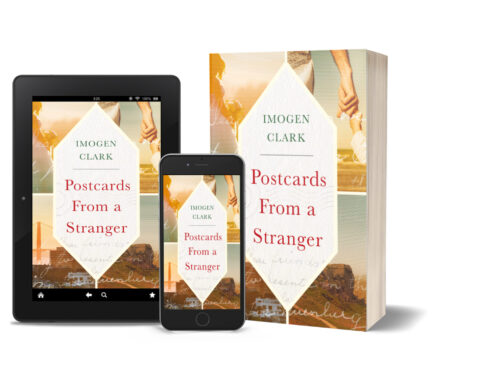You know what it’s like, I’m sure. You do your best work, take a step back and admire what you’ve achieved. You might even allow yourself a smug moment of pride in a job well done.

And then someone comes along and tells you that it could be improved. Your work is criticised and your bubble bursts in a spray of soapy water.
Criticism was something that I dealt with on a regular basis back when I was a solicitor. Having my drafting torn to ribbons was all part of learning to be the best I could be. Even when my boss had got out of bed on the wrong side and was being over picky, I knew how to smile graciously, accept his suggestions and make the amendments, if not with a glad heart then at least in a reasonable spirit.
But fast forward twenty years of having no one but myself to answer to and I have become far less accepting of a challenge! In my little domain, I am the boss. I run my household efficiently and I do it my way without anyone telling me how. And it’s great. I only have myself to answer to and I find myself to be a not unreasonable taskmaster, especially now that I’m a bit older and have my priorities ordered in a way that suits me.
So, what’s the problem?
This week, I’ve been doing copy edits on my next book, The Last Piece. Editing is obviously an extremely important part of the writing process. By the time one of my books hits the shelves it will have been through four formal types of edit, not counting all the work that I do it on my own. And most of these edits are no problem. But the copy edit… Well, it should have its own circle of hell!
‘What is a copy edit?’
I hear you cry. It’s the part of the process when my book is reviewed to improve accuracy, readability, and fitness for its purpose, and to ensure that it is free of error, omission, inconsistency, and repetition. There also seems to be a bit of line editing thrown in for good measure which also means that my word choices, images etc are scrutinised, my timelines pored over and basically everything is put under the microscope.
And what’s wrong with that?
Nothing, of course, if you don’t mind someone punching holes in what you thought was quite a decent piece of work, one that you have sweated over for months, that you have lived and breathed, choosing almost every word as carefully as you might choose a name for your child. (That might possibly be an overstatement but I’m feeling dramatic!) As I said, being criticised, constructively or otherwise, can be hard to hear.
So, I’ve been getting myself in an increasingly steamy lather as I worked my way through my lovely manuscript. Firstly, there are the grammar issues. It appears that English grammar has undergone a number of transformations since I was taught the basics back in the 70s. Commas are all the rage these days and they get everywhere except, it seems, in the places where I was taught to put them.
Then there are my images, which I accept can be a little quirky. But just because a word isn’t USUALLY used in that context does it mean that it’s wrong? Well, yes sometimes I have used entirely the wrong one and I have to admit to have hit on a word that sounds like the one I’m aiming for but isn’t quite right. Those edits are totally fair game. The quirkier ones though, those are all mine and I will fight to the death to protect them!
It might be crisper, she says, if you phrased that like this? Yes, it might be but then it wouldn’t be mine. It’s a writer’s turn of phrase that makes their work distinctive and in this age of Artificial Intelligence it’s even more important that the human voice is preserved and even celebrated.
Then there are the phrases that I use that the editor hasn’t come across. ‘I’ve known him since Adam was a lad’, ‘she was no better than she ought to be,’ and ‘Sea fret’ are three such, all of which would have ended up on the cutting room floor if I hadn’t leapt in to defend them!

I am aware that i sound like a prima donna!
My copy editor, Gill, is a perfectly lovely person and really good at her job. The basic problem here is that I don’t want to hear what she has to say. As I work through my manuscript, I can feel my ire coming out in my replies to her suggestions. Sometimes my use of exclamation marks gets out of hand and if I resort to capital letters then I know that the time has come to walk away from my computer and go get a cup of tea. And I always have to go through the edit twice so that I can amend the comments that I wrote on the first pass into something more reasonable.
Eventually though, after much screaming and blaspheming, I finally get to a version of the document that I can send back for corrections and everyone around me gives a huge sigh of relief that it is done and they will no longer have to put up with my stomping about the house in a fug of indignation.
Obviously, I need to learn how to deal with this better! After all, I will have to go though it at least two more times ( and hopefully many more.) And it results in a better book which can only be a good thing. But can you blame me if I find it a challenge? And the when the next one lands I’d steer well clear if I were you. I clearly need careful handling!







